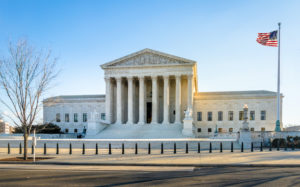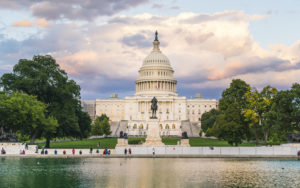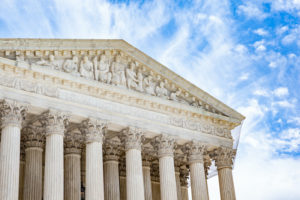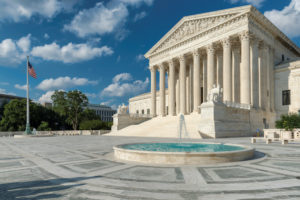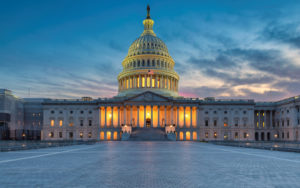Co-Producing Safe Farmers Markets During COVID-19
State and local governments should embrace farmers market managers’ input on food regulation during the pandemic.
The Shape of Water After County of Maui v. Hawaii Wildlife Fund
Despite guidance from the Supreme Court, the future of water regulation remains uncertain.
Clarifying the Default for Anti-Discrimination Statutes
Policy-free textual analysis wins when interpreting causation standards in statutory text for employment actions.
Why the Equality Act Remains Important to LGBTQ Equality
A Supreme Court victory is the beginning, not the end, of the fight against anti-LGBTQ discrimination.
Federalism and Environmental Advocacy
The Supreme Court appears inconsistently enthusiastic about federal regulation and state-centric environmentalism.
Another Explanation of Justice Gorsuch’s Bostock Vote
A recent case protecting LGBTQ rights may help the Supreme Court circumscribe the administrative state.
A Failure of Administrative Law in OSHA During the Pandemic
The hyper-deference courts provide to agencies has failed to protect workers from OSHA inaction amid COVID-19.
Revisiting the Constitutionality of Independent Agencies
The Supreme Court has destabilized principles on federal agencies’ structures and for-cause removal.
A Dream Deferred
An uncertain future awaits the federal program designed to benefit children of immigrants.
Closing a Concocted Clean Water Act Loophole
Congressional intent and clear statutory text promote common-sense enforcement of federal water regulations.
The Emerging Connections Between Income Distribution and Regulation
New quantitative analytics tools help economists understand links between regulation and income stratification.
Ending Legislative Impotence
A recent Supreme Court case suggests Congress needs new processes to legislate effectively and overcome partisanship.



